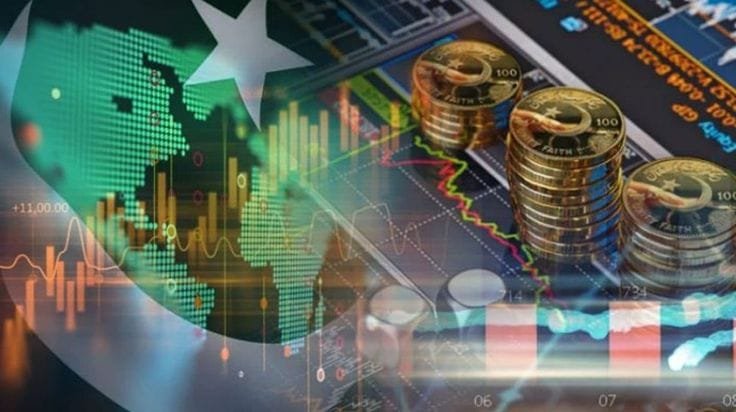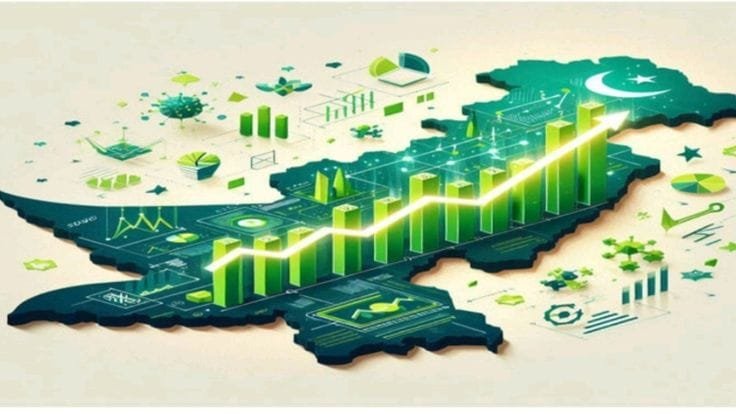Imagine a country brimming with potential, where millions of people are connecting online every day, startups are flourishing, and digital wallets are replacing cash. This is the reality of the Pakistan digital economy—a complex and fascinating ecosystem in the midst of a fast-paced transformation. But what’s really happening beneath the headlines? Let’s explore the story behind the data, the people driving the change, and the challenges shaping the nation’s digital future.
The Digital Dawn: How Pakistan Got Here
The remarkable growth of Pakistan’s digital economy has roots in the widespread adoption of smartphones and mobile internet. Today, over 100 million internet users call Pakistan home, making it one of the world’s fastest-growing internet markets (Pakistan Telecommunication Authority, 2024).
The rollout of 3G and 4G networks across both urban and rural regions unlocked new possibilities. Suddenly, everything from shopping and education to healthcare and finance moved online. Startups seized this moment, launching platforms that solved local problems with global technology.

The Pulse of Innovation: Startups Leading the Charge
Pakistan’s entrepreneurial spirit shines through its startups, which are reshaping industries like fintech, e-commerce, healthtech, and edtech. While established companies like Careem and Daraz have become household names, the newer wave of startups tells an even more powerful story.
For example, Bykea is a ride-hailing and delivery app built for Pakistan’s chaotic traffic and informal economy. SadaPay, another key player, offers fee-free digital banking tailored for younger users. These companies aren’t just building apps; they’re creating new economic pathways for millions who were previously excluded from the formal economy.
What’s particularly inspiring is that these ventures aren’t just focused on big cities. Rural areas, which have traditionally been underserved, are now gaining access to digital services—from online education platforms offering remote learning to agricultural marketplaces that help farmers get fair prices.
The Role of Government and Policy: Laying the Foundation
A robust digital economy requires more than just technology; it needs strong governance. The Pakistani government and its regulatory bodies have been crucial players, implementing policies that encourage innovation while also protecting consumers.
The State Bank of Pakistan’s initiatives on digital payments and branchless banking have been a major catalyst for financial inclusion. In fact, branchless banking accounts have skyrocketed to over 117 million in 2024, helping large segments of the unbanked population gain access to financial services (SBP Report, 2024).
Furthermore, the Pakistan Digital Policy 2020 was designed to foster a conducive environment for IT growth. It includes key incentives for startups, strategic investments in digital infrastructure, and comprehensive cybersecurity frameworks.

The Consumer Experience: Building Digital Trust
For many Pakistanis, the shift to digital services was not immediate. Early skepticism about online payments, data privacy, and digital literacy slowed adoption. However, this is changing rapidly.
Digital wallets like JazzCash and Easypaisa have played a huge role in building trust by offering user-friendly platforms and localized customer service. Today, individuals like Ayesha, a small business owner in Lahore, use these tools daily to pay suppliers, receive orders, and manage her cash flow without ever visiting a physical bank branch. The COVID-19 pandemic also accelerated this shift, as it pushed both businesses and consumers to embrace e-commerce and online services out of necessity.
Challenges and the Road Ahead
Despite this exciting progress, challenges remain. Pakistan’s digital divide is a significant barrier, as internet penetration is lower in rural areas. Gender disparity also persists, with fewer women having access to digital tools and education.
Cybersecurity is another critical issue. As more transactions and data move online, protecting users from fraud and breaches is paramount. The government, startups, and telecom companies are investing heavily in security protocols, but the threat landscape is constantly evolving.
Looking ahead, the Pakistan digital economy is poised for even more growth. Analysts predict the sector could contribute up to 10% of the nation’s GDP by 2030 (World Bank, 2024). Emerging technologies like AI, blockchain, and the Internet of Things (IoT) are beginning to take root, creating new possibilities in everything from smart agriculture to next-generation fintech.

Conclusion: More Than Just Tech, It’s a Human Story
At its core, Pakistan’s digital economy is about more than just numbers or apps—it’s about people’s lives being transformed. From rural farmers getting fair market prices to students accessing global knowledge and entrepreneurs creating jobs, this digital revolution is reshaping Pakistan’s future.
As this transformation unfolds, it invites all of us—policymakers, entrepreneurs, and consumers—to embrace change mindfully, ensuring that technology becomes a force for inclusion, growth, and empowerment for everyone.
Sources & Further Reading
- Pakistan Telecommunication Authority (PTA) Internet User Data 2024 — https://www.pta.gov.pk/en/
- State Bank of Pakistan Annual Report 2024 — https://www.sbp.org.pk/reports/annual/index.htm
- World Bank Pakistan Digital Economy Report 2024 — https://www.worldbank.org/en/country/pakistan/publication
- Karandaaz Pakistan Financial Inclusion Report 2023 — https://www.karandaaz.com.pk/en/research
- JazzCash and Easypaisa Official User Statistics — https://www.easypaisa.com.pk/ | https://www.jazzcash.com.pk/
Pakistan Business & Gateway
Website: www.PakistanIndonesia.com
Instagram: @PakindoICE
Email: PakindoICE@gmail.com
- Author: Aprillia Pradana
Instagram: @rilliapradana
TikTok: @heyrillia_
Email: rilliaofficial15@gmail.com
Punya ide keren, peluang kolaborasi, atau ingin ngobrol langsung dengan tim redaksi kami?
Yuk, jangan ragu untuk hubungi kami lewat email atau media sosial yang sudah tertera di atas. Siapa tahu, obrolan kita jadi awal dari sesuatu yang besar!





